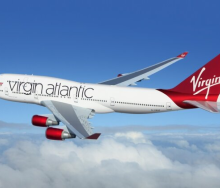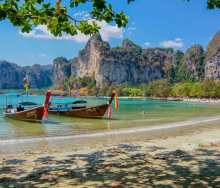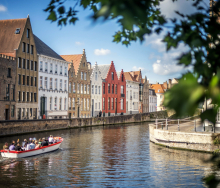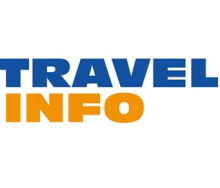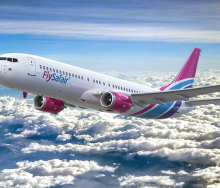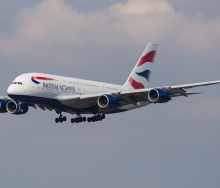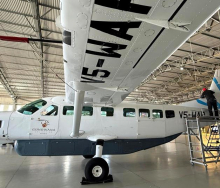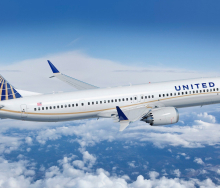The inability of governments to apply COVID travel regulations consistently – in alignment with one another and based on science-backed evidence – has left our travel industry reeling.
In a desperate attempt to plug the gap, individual sectors of the industry have each tried to come up with solutions. Unfortunately, although commendable, this effort has been disjointed and unco-ordinated, leading to further confusion among travellers.
What we need is for the travel industry to form an international coalition, to lobby governments around the world for the urgent instatement of a global standard of travel during the pandemic. This standard needs to establish an easy and safe way for international travel to reopen without the enforcement of unnecessary regulations that (A) aren’t backed by science, and (B) don’t result in solutions preventing the spread of COVID-19.
For example, multiple countries have banned or restricted travel to and from South Africa on the basis that one of our laboratories was skilled enough to discover a new variant of COVID. The research didn’t indicate that the variant originated in SA, or that only South Africans had been exposed to it. All it showed was how competent our researchers are. In fact, the variant was discovered in 31 countries, post our efforts.
A media frenzy ensued, reporting the finding as the ‘South African Variant’ and this catapulted South Africa to pariah status in COVID terms, prompting governments worldwide to close their borders to travellers from South Africa. Practically overnight, our travel and tourism industry was handed a massive setback. These bans and restrictions had no basis whatsoever in science, so where is the precedent for introducing them?
This is especially since governments already require testing to ensure that a traveller is found COVID-negative before they are allowed to embark on their journey. This test largely indicates whether a traveller is negative, regardless of the strain, and so it would seem rather nonsensical for an added ban or restriction to be put in place to prevent a small COVID-free group of travellers from entering your borders.
On a global level, the travel industry is further faced with governments enforcing different interpretations of COVID regulations; different processes around quarantine and different methods of testing. This needs to stop. Surely we have the science to establish a global norm?
While it has certainly clarified the value of travel advisers – with essential travellers flocking to us for support as they attempt to decode the incomprehensible nature of COVID travel – it should also bring home the need for global collaboration, unless we want to ring the death knell on an US$8,8 trillion (R135trn) industry (as reported by the World Economic Forum in 2019).
Quarantine is not a sustainable model for tackling the pandemic. It is a massive assault on the corporate travel industry – and amounts to a crisis. The World Travel and Tourism Council (WTTC) reports that up to 50 million travel and tourism jobs are at risk around the world due to the current pandemic, and this could increase. Travel and tourism, according to WTTC, supports one in 10 occupations worldwide, generating 320m jobs.
Vaccination passports raise concerns as well. What are the long-term implications for freedom of movement if we have to insist on passengers being vaccinated? The claim is that nobody will be forced to use the vaccination, but if we simultaneously limit their right to freedom of movement, can we still claim that they aren’t being pressurised into getting vaccinated against their judgment?
Further to this, we still don’t know how frequently they may have to vaccinate to qualify for travel. Will it be the same as yellow fever vaccinations – something that has to continuously be updated – but now no matter where you want to travel? And what of family travel as children are not being vaccinated and would thus not be able to apply for vaccination passports?
We urgently require consistent, science-backed answers to these questions. The only way I envisage this happening is through the formation of a global travel industry coalition. A coalition that will work to ensure that governments are aware of what the travel industry requires from them in order to operate sustainably during this time, and where we believe they are going wrong.
I’m delighted to announce that on March 2, Asata, as a member of the World Travel Agent Associations Alliance (WTAAA), was part of a coalition of 19 major trade organisations from the global travel industry that came together for a greater purpose.
Senior leaders from industry groups such as the Global Business Travel Association, Iata and the WTTC, took part in a round table focused on accelerating the recovery of the travel industry. The objective for all is to further align global efforts behind common messaging and industry standards that are developed in collaboration with medical experts.
Although there were many areas of opportunity discussed, one message is clear. We must urgently find the pathway to reopen all forms of travel safely and responsibly.
This coalition will need to work in conjunction with WHO and other global health organisations in order to successfully lobby governments, and ensure the establishment of, and adherence to, a global travel standard.
The coalition will meet again on March 9 to formalise the next steps. In the meantime, each member of the travel industry can work towards being a part of this cause. Let’s take this opportunity to create a co-ordinated effort and work for the common good of the industry.
Otto de Vries, ceo of ASATA and board member of WTAAA




